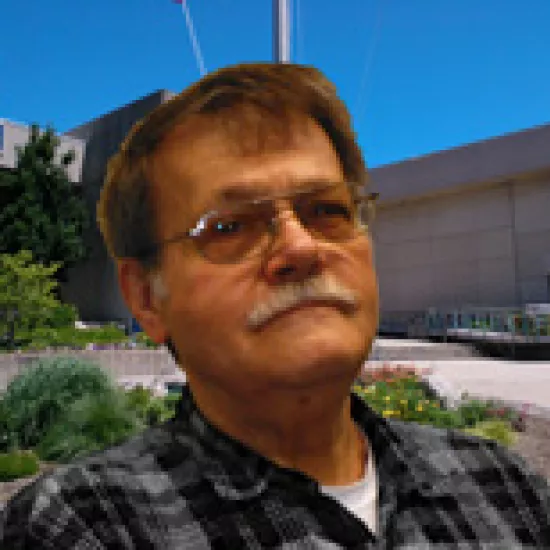
Nearly three decades later, Richard Day's scholarship continues to reflect the influence of the old University of Toronto Political Economy Programme. Challenged and inspired by such luminary teachers as Brough Macpherson, Gordon Skilling, Peter Russell and Steve Dupre, Richard developed an intellectual curiosity and a breadth of interest still evident in his teaching and research.
Richard was already interested in Soviet studies prior to coming to U of T in 1961. He was intrigued that people would organize their society so differently and wanted to understand why this should be. As an undergraduate he grew interested in economic theory and in political philosophy - though he often encountered difficulty reconciling them; in Richard's words, "economic theory is about economic efficiency, but Plato asked "what is justice?'"
A gold medal in political economy and the accompanying scholarship led to an MA and a diploma in Russian and East European Studies from U of T. Initially, though, Richard saw these as simply "entertainment before law school". As the possibility of an academic career suggested itself, Richard weighed scholarship offers from Harvard, Columbia and the University of London. Aside from the unique delights of England, Richard was impressed by the unparalleled documentary resources available in London; besides, he recalls, "Karl Marx had studied at the British Museum, so it seemed the appropriate place for me". Thus Richard chose the University of London for his doctoral work in Soviet Studies.
By 1970, he had returned to the University of Toronto, to teach at the brand-new Erindale campus. His first book, Leon Trotsky and the Politics of Economic Isolation, made his mark in the field of Soviet studies. Subsequent work integrated thorough scholarship in Soviet politics with an uncommon insight into the basic issues of political philosophy and economic theory. He focussed on how the Soviet intelligentsia interpreted their own problems in reference to what they saw of the outside world. In The 'Crisis' and the 'Crash': Soviet Studies of the West, 1917-1939, and in a recent follow-up study, Cold War Capitalism: The View From Moscow, 1945-1975, he came to recognize that for all their ideological preconceptions, Soviet scholars often possessed acute insight into the political economy of the West. Richard says he "learned how to think about our history by encountering these striking observations from another worldview".
Not content with this daunting project, Richard translated and edited several volumes of economic and political writings by such notable figures as Bukharin and Preobrazhensky, and also returned to the study of political philosophy. He is particularly proud that the book he co-edited with Ronnie Beiner and Joe Masciulli, Democratic Theory and Technological Society, was selected by Choice as an Outstanding Academic Book of the Year in 1988-89. Richard sees working through the theories of Kant, Hegel, Marx, Lukacs and Habermas as an essential challenge to a political economist: in his view, political philosophy helps to appreciate and to understand the limits of economic theory - and vice versa.
